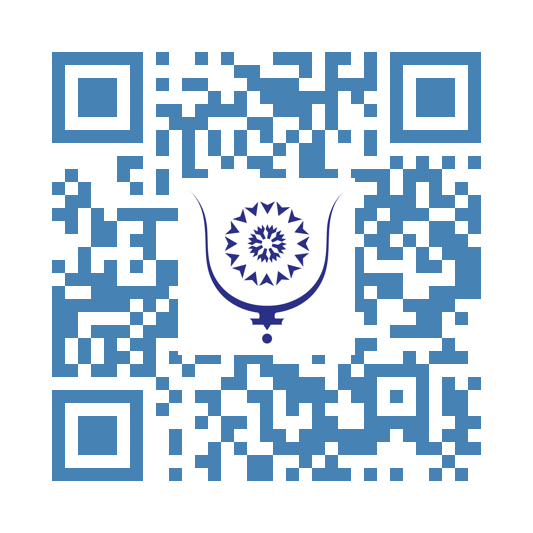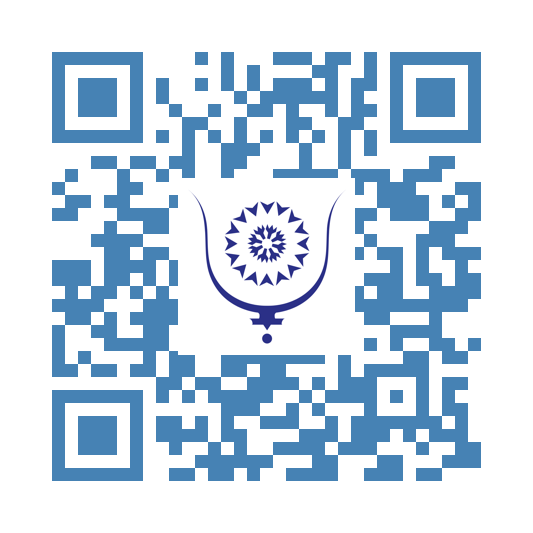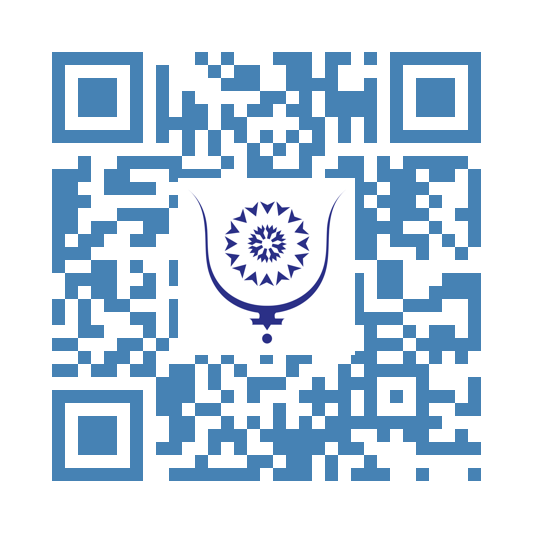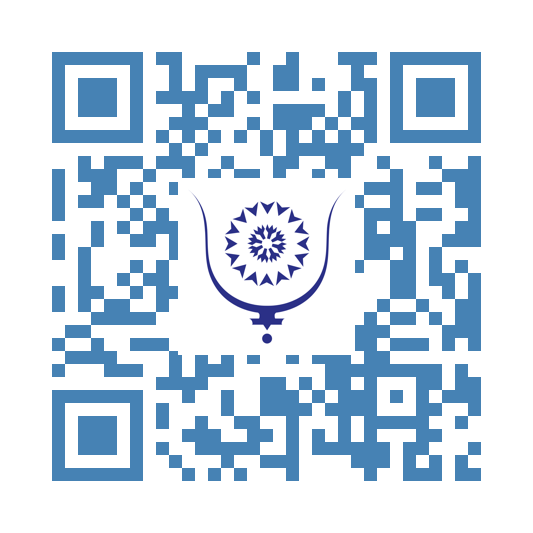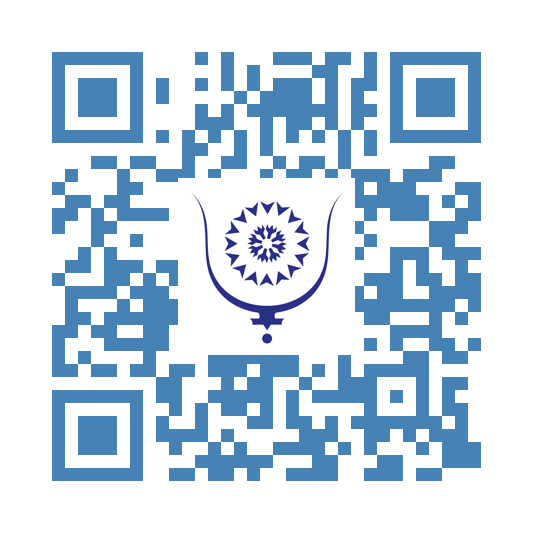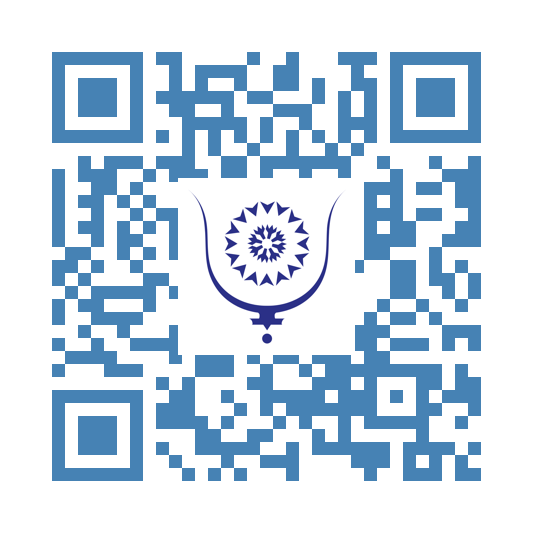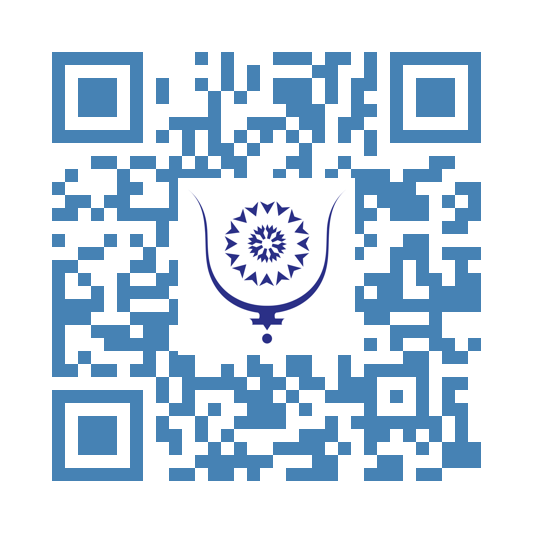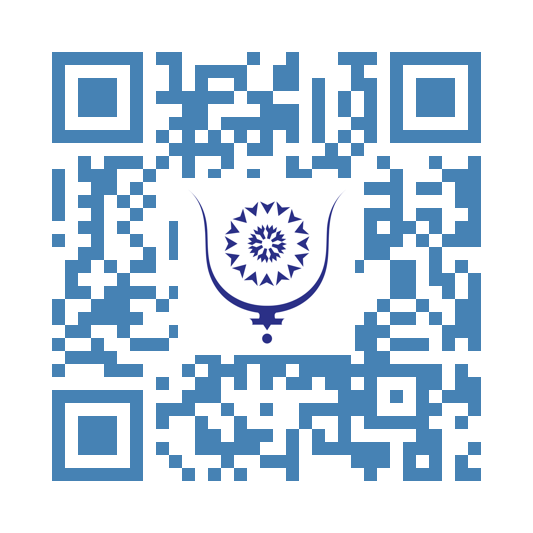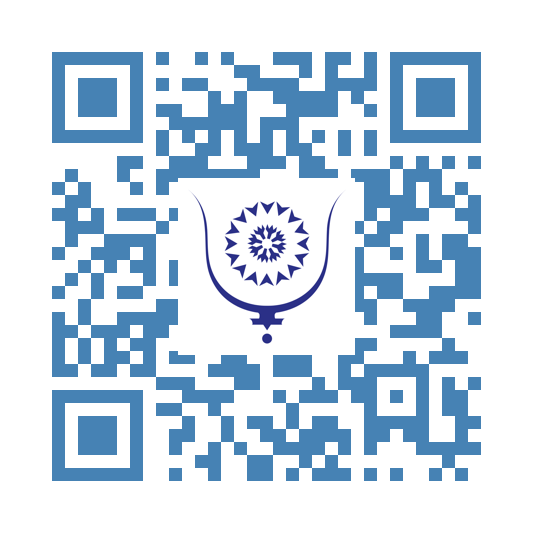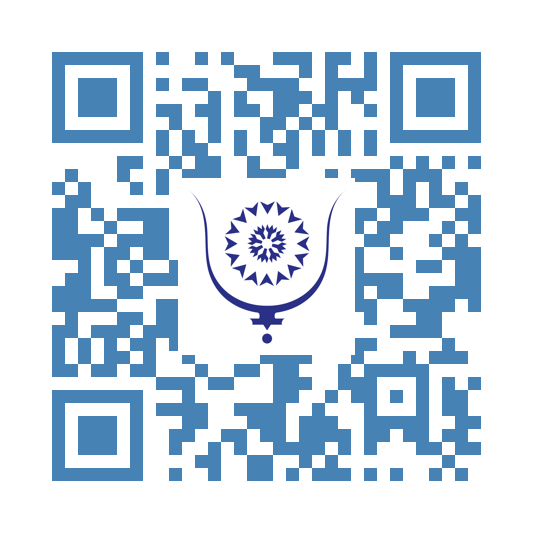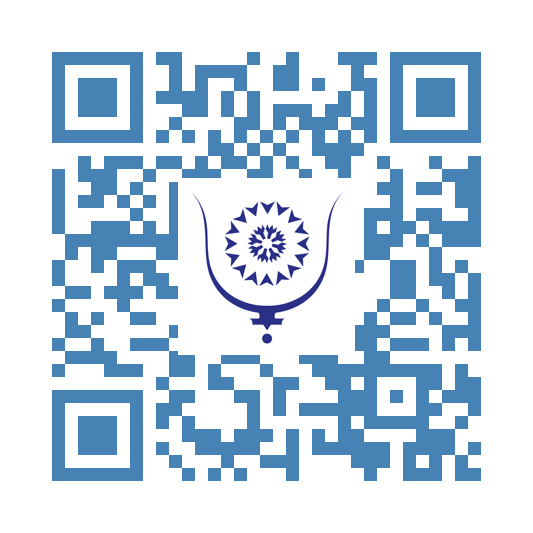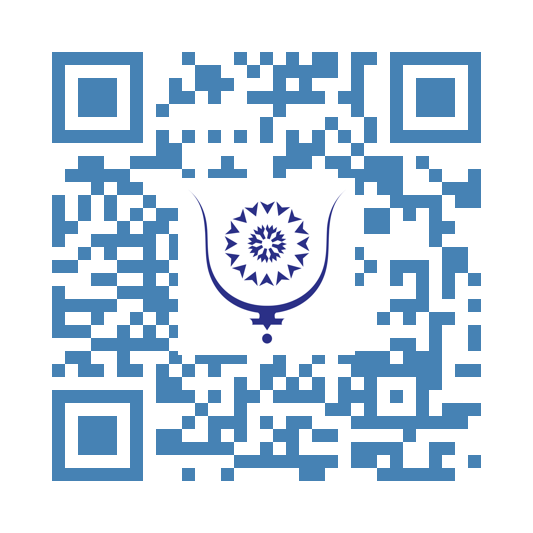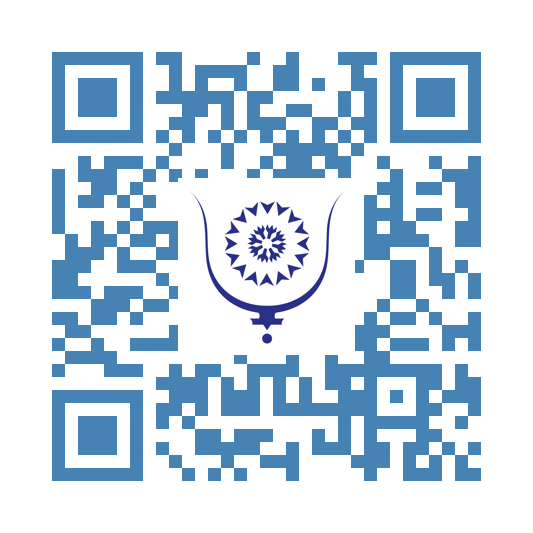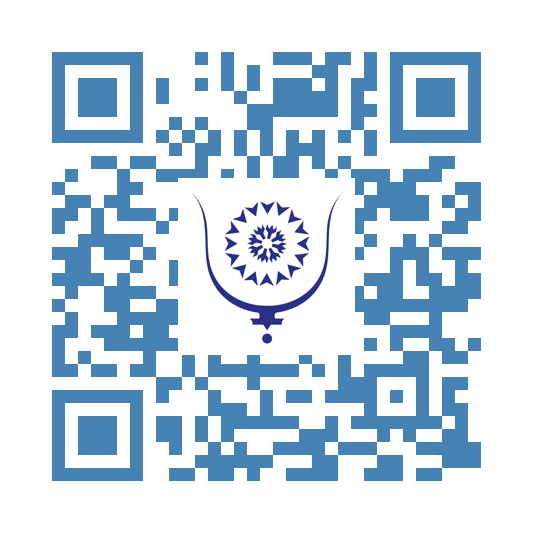Growing Older: A Joyful Perspective
214
Growing older is not a pain in the ass.
No offense to the late Bernard Pivot.
Growing older is hilarious.
I would even go further:
Growing older is exciting,
it is soothing,
it is marvelous, it is fantastic, and it is rather reassuring.
Growing older is a boon and an unprecedented opportunity to watch your children grow up and grow old...
Growing older is a gift from heaven and a blessing from God to enjoy your grandchildren by playing with them, having crazy fun with them, and almost becoming children with them...
Growing older is marvelous and simply fascinating to keep seeing your childhood friends, to persist in joking with them, and to share memories and adventures experienced together...
Growing older is an ideal opportunity to discover other cultures, to travel, and to treat yourself again and again...
Growing older is becoming wise, it is sharing experiences, it is advising the younger and the less young...
Growing older is helping your neighbor, it is assisting others...
Growing older is the time to meditate, to dream, and to pray for this world that is becoming crazier and crazier...
Growing older is expecting nothing from others but responding to the expectations of others...
Growing older is being serene and confident in the future and never fearing what lies ahead or the bad tomorrows.
Growing older is being optimistic and always seeing the glass as half full.
Growing older is having faith and believing in the goodness of God, who alone programs all things.
Growing older is defying age and its wrinkles and its share of weaknesses, illnesses, and crises...
Growing older is facing life and its uncertainties...
Growing older is waiting patiently and serenely for the sound of one's own knell (or funeral bell)...
Dr. Fouad Bouchareb
May 8, 2024
All rights reserved
Share:
Growing Older: A Joyful Perspective
copy:
https://bluwr.com/p/511284520
The Value of Authenticity
401
This is our problem. 👌
What value does friendship have without sincerity?
What value does reading have without understanding?
What value does writing have without evoking emotions?
What value do words have without meaning?
What value does discussion have without logic?
What value does a smile have without pure intentions?
What value does a commitment have without loyalty?
Too often, we make friends without being sincere,
we love without being faithful,
we talk a lot without acting, and we promise without keeping our word.
Dr Fouad Bouchareb
All rights reserved
Agadir, November 15, 2025
Share:
The Value of Authenticity
copy:
https://bluwr.com/p/507126531
Moroccan Sahara: The Irreversible Truth Confronting Denial
764
Since the adoption of United Nations Security Council resolution 2927, arithmetically, broadly, and logically favorable to Morocco, Algeria seems to refuse to acknowledge the obvious. Despite the clarity of the text and the broad international consensus it generated, Algiers continues its diplomatic and media agitation, multiplying interpretations and contradictory positions. Leading this charge is Minister Ahmed Attaf, sent to the front lines. He is conducting a verbal offensive where misinformation rivals obstinacy. Every word of the resolution is dissected, twisted, and reinterpreted by Algerian agencies and their media outlets. Here, there is no fear of ridicule. It is fully embraced. Some international statements are even distorted to give them a coloring and meaning conforming to Algiers’ narrative. Staffan de Mistura, personal envoy of the UN Secretary-General, as well as Massad Boulos, have not escaped these discursive manipulations. Only Aljazeera continues the distortion and spares no words. This is not surprising: Algiers is sanctified there for well-known reasons.
This now usual strategy relies on fake news and disinformation, which have become preferred tools in Algerian diplomacy when it comes to the Sahara dossier. Yet, one fact remains indisputable: Morocco is truly at home in its Sahara and asks neither permission nor validation from anyone to remain there.
Fifty years after the artificial triggering of this dispute, Algeria seems to have learned no lesson and even less awareness; despite billions of dollars invested that could have benefited the Algerian people; despite successive military and diplomatic defeats, obstinacy remains the watchword here. A chronic morbidity.
Since the 1991 ceasefire, the political and diplomatic momentum has irreversibly shifted in Morocco’s favor. The Kingdom has achieved a true Remontada, as Samir Bennis likes to say. The effect of propaganda and blind support from the Eastern bloc and its allies has faded. Everyone has come to reason, except a few exceptions upheld by outdated means. Morocco’s autonomy proposal, judged serious and credible by the international community, is now the sole recognized basis for a solution by the Security Council.
Facing this, Algiers continues to rely on a network of marginal allies: South Africa, Iran, which have in turn expressed their dismay over Algiers' defeat, and Venezuela; all struggling to hide their diplomatic isolation. These supporters oppose a resolution which, however, places the political solution proposed by Morocco at the core of the UN process. But to no avail: U.S., French, British positions, and now Chinese and Russian ones, as well as explicit or implicit support from over 130 countries, confirm that the wind of history blows definitively in Morocco’s favor.
In this context, the Kingdom displays a posture of calm firmness. His Majesty King Mohammed VI, faithful to his policy of an outstretched hand, has reaffirmed his desire for a "solution without victor or vanquished." The calm tone of his remarks confirms both his goodwill but also warns that Morocco’s patience has limits. The message is clear: the time for unilateral concessions is over; there is no alternative to the self-determination plan put forth. Foreign Minister Nasser Bourita summarized this position with a significant smile on channel 2M: "The matter is closed." This friendly smile, more than a gesture, reflects the confidence of a country sure of its rights, backed by historical, legal, political legitimacy, and now UN recognition.
Who can say more?
The decision of the Moroccan sovereign to designate October 31, the date of the vote of resolution 2927, as a new national holiday is not trivial. It marks a symbolic turning point: the definitive consolidation of the Sahara within the national fold and the international recognition of this reality. The Kingdom’s message is unequivocal: Morocco has waited too long, compromised too much, to continue to suffer the sterile deadlock maintained by its belligerent neighbor to the East. Now, the time has come to accelerate development, modernization, and socio-economic valorization of the South, which has become an engine of national and regional growth. This is how to interpret this declaration: There is a before and after October 31, 2025.
A change of paradigm in the neighbors would make us all gain more than two points of annual growth, with all that this implies for the peoples of the region. Yet Algiers refuses, even though the country is adrift and its population lacks the essentials to live decently. But the Algerian military, behind their fake stripes, do not care. Stubborn, they see no further than the tip of their nose... They probably have not understood what Syria, Libya, and Iraq suffered, nor similar cases in Latin America. Stubbornness in folly and denial of reality can only be counterproductive. History demonstrates this abundantly. One must know how to read this history and learn from it.
Algeria, unfortunately for its people, persists in a strategy of refusal, forgetting that the world has changed and diplomatic balances have shifted. It still thinks it can buy time and bet on a new American presidency in three years. Three years is long for President Trump...
While Morocco advances, builds, and invests in its Southern provinces, supported by the common sense of those who know how to do business for the benefit of their peoples, Algiers remains trapped in a bygone past and an exhausted ideological narrative. The Sharifian Kingdom, on the other hand, looks to the future, serene in its legitimacy, solid in its national unity, confident in its rights, and now carried by the international recognition of a truth that is indisputable: the Sahara is Moroccan, and it will remain so.
Share:
Moroccan Sahara: The Irreversible Truth Confronting Denial
copy:
https://bluwr.com/p/482486508
Morocco, united and indivisible: October 31, memory and vision of a united kingdom...
992
There are dates that cease to be mere markers to become strong symbols.
By establishing le 31 octobre “Fête de l’Unité”, His Majesty King Mohammed VI has not only added a day to the national calendar of holidays: he has inscribed in the collective memory a certainty, that of a united Morocco, faithful to its history, confident in its destiny, certain of its future.
This choice, placed on the eve of the anniversary of la Marche Verte, is not a coincidence, but a message. It links two moments: one of memory, the other of hope, to remind that in Morocco, unity is not a stance, but a collective philosophy of life, a historical continuity, a conviction ingrained in the soul of the country and each of its citizens. The age-old unity of the Kingdom is the golden thread of Moroccan history.
**On November 6, 1975, three hundred and fifty thousand Moroccans, the Quran in one hand and the flag in the other, it must be recalled, supported by many nationals of friendly countries, including a Prince not to be overlooked, marched south to reclaim what should never have been lost: the Sahara, the Kingdom’s matrix.**
La Marche Verte was not a conquest; it was a return, a peaceful affirmation of a legitimacy older than the borders drawn with rulers on colonial maps. It was also a vow between the Throne and the people, between the past and the future. A vow that nothing, neither diplomatic maneuvers nor hostile campaigns, nor propaganda worth billions of dollars, could undermine. The Moroccan does not yield. The Moroccan is faithful to his commitments. The Moroccan keeps his word, the Moroccan is aware of the diversity of his country but conceives it only in unity and cohesion.
By deciding to make le 31 octobre "la Fête de l’Unité", His Majesty King Mohammed VI reactivates this vow and transposes it into the present time: Morocco’s unity is not a glorious memory, but a horizon built every day, a future forged on law and faith, diplomacy and perseverance, development and shared prosperity.
For half a century, Moroccan diplomacy has patiently unrolled the thread of a clear strategy: defending Morocco’s sovereignty over the Sahara without ever yielding to provocation, making legitimacy prevail by reason and not by force.
Recent résolutions du Conseil de sécurité have confirmed the soundness of this line. They endorse the seriousness and credibility of the Moroccan autonomy proposal, a realistic, modern path, consistent with the aspirations of the local populations and the entire Moroccan people who have adhered to it, fully understanding the sacrifice requested.
**Conversely, Algeria persists in an anachronistic stance, entrenched in its support for Polisario, which no longer represents more than a shadow of itself. A movement built on lies, fake news, and propaganda worth billions of dollars. It is probably the most costly situation of its kind since humans existed.**
No one has ever known how many Sahrawis truly followed Polisario, or how many, with the help of its patrons, it brought from Mauritania, Mali, Nigeria, Chad, and elsewhere to strengthen its ranks. The generosity of Gaddafi having greatly helped, it must not be forgotten!
Today, Algeria is cornered into allowing le recensement des populations des camps and census means, in parallel, identification.
The fixed discourse of the separatists no longer holds sway over reality: while the Tindouf camps are mired in waiting, the Southern Provinces of Morocco awaken to life, development, and dignity.
The contrast is striking: there, immobility; here, construction.
There, ideology; here, reality.
"La Marche Verte" was never a closed episode; it has become a national doctrine, a founding story, a living myth, the belief of a nation: the oldest nation in the world. It has forged a rare national consciousness, made of loyalty and faith in the continuity of the Kingdom. In a world marked by fragmentation and wounded identities, Morocco has made its unity a compass, not nostalgia.
In Laâyoune, Dakhla, Smara, Boujdour, or Bir Guendouz, the fervor of the October 31 celebrations says better than speeches the depth of this bond. These cities, once marginalized, today embody a Morocco on the move, confident, faithful to its roots, and looking to its future.
*The South is no longer a remote part of the Kingdom: it is its beating heart.*
The Sahara is a promise of the future, a development laboratory, and a strategic hub of the Kingdom. Investments in renewable energy, fishing, infrastructure, tourism, and logistics have transformed the region into an essential crossroads between Africa, the Atlantic, and Europe.
Here is being experimented, in open air, the royal vision of a modern, balanced, and inclusive Morocco, a Morocco that leaves no region behind.
The "Fête de l’Unité" is not just a tribute to the past: it is a projection into the future.
The "Fête de l'Unité" tells Moroccan youth that unity is not a legacy to be admired, but a building to be built, constructed day by day, through work, loyalty, and faith in the nation, with an unyielding respect for the memory of sacrifices and a firm belief in the promise of continuity.
On October 31, Morocco celebrates, but remembers: the soldiers fallen on the dunes, the diplomats who have defended the national cause on all the world’s stages, the pioneers who built in the sand the foundations of exemplary development.
Through them, it is a whole country that looks at itself in the mirror of its history, not to indulge, but to draw strength to go further. *Because deep down, Morocco’s unity is not a political act; it is a historical truth, a state of mind, a visceral loyalty.* October 31 simply gives it a name, a date, a renewed breath.
There is no unity without memory, nor memory without the future. Morocco has never celebrated the past for the past but always as an evocation to project into the future. It has never believed in a fixed memory rent. Strong in its history and regained sovereignty, it now advances with the serenity of those who have nothing to prove, only to pursue. Its DNA is special but never to isolate itself. On the contrary, the Kingdom sees itself as part of a world open to cooperation, freedom, and prosperity.
*In the southern wind, in the distance, the same vow always resonates:
One Kingdom, one soul, one destiny.*
Share:
Morocco, united and indivisible: October 31, memory and vision of a united kingdom...
copy:
https://bluwr.com/p/470136423
Complaints to God
1194
💔 Complaint to God
O, you who struck me with arrows of betrayal
And want me to understand the cause of the harm
You think the wound has been bandaged
And that I have moved past the injustice
And forgotten that its puncture is still bleeding?
The heart still weeps from its burning pain
Despite the passing of years and seasons.
How astonishing she is, and her audacity,
How she narrates delusions,
And how life increases its smiles for her,
And how her eye finds comfort in sleep,
And enjoys dreams,
And thinks she is receiving blessings,
While she is the one who humbled stature and nations.
So, to the Lord of the Kaaba, I pray and complain of injustice,
For her injustice was a bad omen,
Not blameworthy,
For she is an ill omen that does not deserve a word from me,
Not even a greeting, nor peace.
So, to God I complain and plead for a judgment,
For Glorified is He, He is Wise and All-Knowing.
Dr. Fouad Bouchareb
All rights reserved
October 28, 2025
Share:
Complaints to God
copy:
https://bluwr.com/p/459701517
The Lost Necklace
1231
The Lost Necklace
How beautiful is your dentition
Which sparkles like a necklace of diamonds
So Desirable and appetizing
When I kiss you and embrace you
With fervor and grace
I savor your saliva like such fine milk
Where musk and wine mingle
O apple of my eye
O gift from the heavens
It is you I love and desire
Your presence is a true pleasure
What must I do to attract you and please you?
When you fled
My insomnia deprived me of your smile
Suddenly the gleam of the necklace eclipsed
And I found myself sick and lost
To the great dismay of my messenger
Will you return one day?
Will you keep your promise?
Who will transmit my poetry?
Perhaps one evening the South wind
Will bring you my message
Which confesses my feelings and my pledges
My sorrows and my misfortunes
And the slender hope
Of seeing the gleam of your dentition in the dark one day
Dr Fouad Bouchareb
Inspired by an Andalusian music poem
Quoddam El Hgaz El Kebir
November 8, 2025
Share:
The Lost Necklace
copy:
https://bluwr.com/p/456678457
Ahmed Attaf and the Thousand-Time Waltz...
1410
The latest appearance of the valiant Ahmed Attaf is strikingly different from what we have come to expect from him. Still hiding behind his habitual composure, he nonetheless lets a certain unease seep through this time. The man is embarrassed. He is at once a juggler, a tightrope walker, an acrobat, a dancer, and the regime’s fireman. He searches for his words, his sentences seem to cut his breath short. At times, he gasps. His statements are full of contradictions and twisted contortion, the very archetype of a diplomat out of breath, yet still skillful.
In his role as firefighter, he tries to reassure domestically, even to timidly proclaim, yet proclaim nonetheless, a great victory. Algeria, he insists, has made the entire world, the USA first among them, bend to its will. As a juggler, he seeks to reassure the great powers, pretending modestly that his country holds no grudges, thus avoiding any offense to their sensibilities. A perilous exercise indeed, for soon he will be summoned to the negotiating table as a direct stakeholder. There, he will need all his ingenuity to escape the dictates of peace that the international community seeks to impose, a peace to be built with Morocco. He now perfectly understands that he can no longer sail under disguise: his country is directly involved.
Behind his measured tone and carefully chosen words, his media appearance follows a precise logic built around three goals: calming the domestic front, preparing public opinion for a return to negotiations on the Sahara issue, and reaffirming Algeria’s red line: no normalization with Rabat. Like a skilled tightrope walker, he subtly boasts that the divergence with Washington and Brussels is “under control.”
Indeed, the U.S. can very well understand the first two points—internal appeasement and preparation for talks, but fundamentally differs from Algiers on the question of rapprochement with Morocco. For Washington, this normalization is a cornerstone of its Atlantic-African strategy surrounding critical minerals, a key front in its rivalry with China.
The European Union shares this view: it sees Moroccan-Algerian reconciliation as a prerequisite to reviving the Euro-Mediterranean project, which has been paralyzed for years by the rivalry between the two neighbors.
Brussels and Washington may both believe that this strategic disagreement can be managed in the short term, since their common priority remains the resumption of negotiations on the Sahara, a stabilizing priority for the region. But everyone understands that the Algerian military regime sent Attaf to absorb the shock of the New York earthquake.
His first mission, then, was to calm tempers after the blow dealt by the latest UN Security Council resolution, which reaffirmed the Moroccan autonomy plan as a serious and credible basis, indeed, the very outcome of the negotiation process.
Morocco’s diplomatic success triggered a real shockwave in Algiers, where the regime fears that diplomatic defeat could turn into internal strife between different factions of power, particularly between the military hierarchy and the political front.
To prevent such implosion, Attaf tried to rewrite the official narrative: the resolution, he claimed, was not a Moroccan triumph but an Algerian victory—Algeria had “prevented the imposition of the Moroccan agenda.”
This interpretation blatantly contradicts the statements of Algeria’s own representative at the UN, who justified the country’s abstention by the central role given to the autonomy plan.
Yet, in the media sphere, the maneuver worked. Attaf’s discourse found favorable echoes, even among certain critical circles within the regime.
In truth, this appeasement operation also suits Washington and Rabat: it guarantees the stability of the Algerian regime and maintains domestic calm, conditions necessary to pave the way for future discussions without internal interference. Everyone is now working to prepare the ground for negotiations.
Attaf’s second objective was to prepare national and international public opinion for the idea of returning to the negotiating table, in line with U.S. pressure to revive a concrete political process.
The minister thus sought to present the UN resolution in a positive light, even calling it “a victory for the principles of the Sahrawi cause,” while claiming that Algeria would have voted in favor if not for a phrase mentioning “Moroccan sovereignty.”
A clever balancing act, meant to narrow the gap between official discourse and diplomatic reality, and to justify a possible Algerian participation in new talks without appearing weak.
This tactical repositioning remains fragile. If U.S. pressure were to ease, Algiers might once again resort to delaying tactics to stall or hollow out the process. But the Americans are not fooled, and they are in a hurry.
From Morocco’s perspective, this evolution is far from unfavorable: Rabat favors a negotiated settlement, with no victor or vanquished, as long as autonomy remains the end goal. Algiers, for its part, seeks to preserve its red line, no normalization with Rabat.
The third axis of Attaf’s communication was to avoid an existential danger for the regime: being perceived as yielding to normalization with Rabat under Washington’s pressure. In a scenario of heightened constraint, Algeria might accept a political solution on the Sahara issue, but without taking the diplomatic rapprochement step.
To consolidate this stance, Attaf deliberately rewrote the lexicon of the UN text. Where the resolution speaks of “parties,” “political settlement,” and “autonomy,” he preferred “decolonization,” “referendum,” and “Sahrawi people.” This deliberate semantic shift aims to sustain the illusion that Algeria remains faithful to its doctrinal logic, even though the referendum scenario was abandoned by the United Nations nearly two decades ago.
His media appearance was therefore not merely a diplomatic reaction to a UN resolution, but a carefully orchestrated communication operation.
It pursued three objectives: to calm the domestic front, prepare public opinion for future talks, and reaffirm the refusal of any normalization with Rabat.
Ironically, these very three lines of communication, meant to defend Algeria’s position, end up reinforcing the UN framework for resolution—the very framework that enshrines Morocco’s autonomy plan as the main reference, redrawing regional balances to the benefit of Morocco and its Western allies.
Share:
Ahmed Attaf and the Thousand-Time Waltz...
copy:
https://bluwr.com/p/454824294
The Ultimate Dance 💃
1372
The Ultimate Dance 💃
He whispers to me during our waltz
Words and beautiful phrases
He holds me tight in his arms
And takes me into extraordinary dreams
And the tears from my eyes...
As if by magic, illuminate earth and sky
He carries me to all corners of the dance floor
In this sweet evening between music and choristers
And I, like a child in his hands
Like a feather in a trance to the rhythm of the refrains
He offers me the stars and the moon and his hand
He hums hymns for better tomorrows
He offers me the sun
He offers me summer and its warmth
He promises me years of happiness
He tells me that I am unique
And that I am worth more than all the stars and Sputniks
That I am a treasure
The best picture on board
His words intoxicate me
To the point of making me lose the rhythm of my steps
Words of love that I don't know
Which restore my implacable femininity
He builds me a sandcastle
That I inhabit for a few unforgettable seconds
Then I return...
I return to my table
Just with memorable words
Dr Bouchareb Fouad
All rights reserved
November the 6th, 2025
Share:
The Ultimate Dance 💃
copy:
https://bluwr.com/p/452236034
When Morocco’s Greatest Match Becomes Its Worst Mirror…
1573
The Casablanca derby, the supreme celebration of Moroccan football, meant to take place at least twice each season, has turned into a sad reflection of our collective failings. What should have been a hymn to the passion of football has become a march toward shame: the shame of not respecting the most basic alphabet of the game, of civility, of respect for others, and of the rules of the Federation and FIFA.
The latest edition, in particular, offered yet another all-too-familiar scene: flares, clashes, the throwing of incendiary objects, destruction of public and private property, and a match repeatedly interrupted. The green rectangle, once a sanctuary for the game and the players’ sporting performance, is now held hostage by the pyromania of the stands and the forced complacency toward behavior that is beyond disturbing.
This time, the sheer number of flares was so staggering that it raises countless questions: Who sells them? Who ignites them? And how are they so regularly smuggled into stadiums?
Who benefits from turning the Casablanca derby into a footballing wasteland?
It is no longer a football match, it is a war zone, a scene of spectacular movie-like special effects imported into the terraces. In the name of the club’s flag, common sense has been cast aside. Raja and Wydad, two monuments of our sport, are being manipulated, overtaken, hijacked, and exploited by crowds who confuse fervor with fury, believing they defend their colors while trampling the honor of the beautiful game. In the name of the club’s supposed love, we end up defending obscure causes far removed from the essence of the clubs themselves — if such an essence still exists.
It has become a kind of grandstand ultra-nationalism. Some groups have set themselves up as militias of the stadiums. They control the stands, impose their laws, and enforce their violence. They now even dictate the rhythm of the matches, play begins when they allow it and stops when they decree it. Their tifos are glorified, but few dare name their excesses for what they are. Yet behind the choreographies, sometimes splendid, sometimes tasteless, lie preparations worthy of a battlefield: sharp objects, stones, illegally imported flares and explosives, coded mobilization calls, and incitements to confront all that represents order.
Insults to institutions, fake news, subversive slogans, everything mixes together with no restraint or shame: a volatile cocktail of social grievances and barely veiled political activism. Even foreign policy and the country’s international positions are dragged into it. So much for the common good, the good of the entire nation.
Club officials feign surprise or hide away, waiting for the storm to pass, as if smashed buses, bent gates, and toxic smoke were accidents of fate. The authorities design strategies and take precautions, yet repeatedly face dangerous overflows. Their stance is paternalistic at best: as if dealing only with unruly children. The ringleaders, meanwhile, stay safely out of reach, though some are visible, even stepping onto the pitch to stir up and inflame the crowds.
As for the Federation, it responds with fines and closed-door matches, the same administrative ritual that no longer frightens anyone. Has football been taken hostage?
The consequences are disastrous: interrupted matches, financial sanctions, and a tarnished international image. Morocco, once celebrated for its popular fervor, now offers the image of a sick football, where passion blurs into madness. These outbursts kill the game, stifle talent, and drive away families who once dared to attend matches.
In a country where football is almost a religion, it is heartbreaking to see the temples of sport turned into lawless zones. Children who once dreamed of the derby as a founding myth now see only ritualized chaos, a folklore of wreckage. Some may even join in, believing this is simply “how it is.”
But should we resign ourselves and admit a failure of courage?
It is not club rivalry that is to blame, but our collective inability to civilize it. It was not always like this. The problem does not lie in the chants, but in what we tolerate in the name of passion. Stadium violence is, above all, born of silence: the silence of clubs unwilling to alienate their supporters; the silence of media that prefer to glorify the atmosphere rather than denounce its excesses; and the silence of authorities forced to maintain order alone before a crowd they were never meant to manage, unlike elsewhere.
By failing to choose and only punishing after the fact, we have allowed *charhabe* to settle in as a tolerated subculture, a norm, a distorted identity. The derby should not be a test of strength but a celebration of the city, of talent, and of the players’ pursuit of excellence on the field.
Yet the myth of the derby must survive, because beneath the rage lies a truth: the Wydad–Raja rivalry is one of the most beautiful stories in African, perhaps even world football. It has inspired generations, forged careers, and given birth to songs and dreams.
But this tradition will not survive if it continues to sink into hatred and absurdity.
The derby deserves better. Casablanca deserves better. Morocco deserves a football where passion does not mean madness, where the color of a jersey does not justify brutality and violence. If nothing changes, the kingdom’s greatest match may soon become its greatest scandal: **the Derby of Smoke.**
Share:
When Morocco’s Greatest Match Becomes Its Worst Mirror…
copy:
https://bluwr.com/p/448138883
Morocco triumphs at the UN but remains humble and open... Algeria responds with denial...
1801
The United Nations Security Council vote, it must still be reminded, marked a decisive turning point for Moroccan diplomacy and the future of the region.
“There is a before and after October 31,” said His Majesty the King. Through broad and unequivocal support for the Kingdom's position, the international community once again confirms the credibility of the Moroccan approach via the autonomy plan proposed since 2007. In fact, the international community thus salutes Morocco’s stability as a credible regional actor and highlights its immense efforts in developing the southern territories and their spectacular progress benefiting its citizens and the regional populations. This success is no accident: it results from a relevant, consistent, patient, firm, and humble royal vision, favoring dialogue and cooperation rather than escalation and provocation. His Majesty King Mohammed VI has never ceased calling for reason and cooperation for 26 years.
Immediately after the vote results were announced, His Majesty once again called for direct and sincere dialogue with Algeria, addressing President Tebboune explicitly. The message is framed within a logic of peace and historical responsibility. The sovereign, far from being triumphalist, extends his hand once more to a neighbor who insists on hiding behind outdated slogans and archaic postures. This offered hand starkly contrasts with the rejection and even hatred that dominates the other side of the border. While Rabat multiplies gestures of openness, Algiers stubbornly remains closed to all dialogue, preferring a haughty stance, sterile confrontation, and counterproductive refusal of reason. A chronic resentment that surprisingly becomes doctrine.
The reaction of Algerian media after the Security Council vote shows a mindset marked by disinformation, propaganda, hatred, and a mean-spirited aggression. Some statements on state television even questioned the integrity of the member states that supported Morocco’s position; others spoke, just hours after the vote, of a possible return to arms, as if war could remedy a stinging diplomatic failure. More worrying still, insults toward Morocco, notably the label of a country "in the pocket of the Zionists," reveal a level of extreme nervousness nearing loss of control. The word "makhzen," knowingly debased, is thrown to the wolves by debaters competing in buffoonery and comic exaggeration. Do they realize that this hateful language only strengthens Algiers’ isolation? By accusing the whole world of conspiracy, the Algerian military may not realize that diplomacy must be a realm of credibility and trust, not blind resentment. Meanwhile, the world watches and finally understands. Algeria neither seeks nor wants to be a partner in peace and construction.
Today, the international community witnesses: Morocco proposes, Algeria blocks. Morocco builds, Algeria destroys. Morocco advocates cooperation, Algeria confrontation. From Washington to Paris, Madrid to Dakar, Seoul to Brasilia, Riyadh to Freetown, capitals have grasped the difference between a forward-looking policy and a stance frozen in outdated ideological nostalgia, laughable. The Sahara is no longer a matter of regional propaganda but a global stability issue: it touches the Sahel’s security, the fight against terrorism, and the balance of the entire North African space. Algeria’s obstinacy is costly, and the world is tired of it.
By clinging to a matter in which it declares itself "not concerned," Algeria traps itself in an unbearable contradiction and a burdensome attitude. How long can this unsustainable situation persist without the international community intervening to end this obvious support to a group with dubious activities?
The day fatigue increases, particularly in the United States, which could come soon, the temptation to designate the Polisario as a terrorist organization would become possible and credible. This is quite plausible considering the separatists’ military activities, their regional ties with recognized terrorist groups, and their presence in an area rife with trafficking in which they actively participate. Nothing would prevent it since the idea is already circulating in the US Congress, introduced by Joe Wilson, who gathers much support. Algiers would then be in an untenable position, responsible for harboring, funding, and arming a terrorist group. Such a drift would expose the Algerian regime to its own contradictions and risks. Algerian insults, from officials and press alike, sometimes direct, sometimes barely veiled toward France, Spain, even the USA and now the Security Council and all those supporting the Kingdom will eventually take effect. Pushing the Polisario to declare that it will not participate in negotiations is just suicidal for Algiers.
We must never forget that the future belongs to those who build, and that builder is Morocco, which has chosen the path of building a better future for itself and the region. The Kingdom has opted for partnership and peace. It consolidates its African leadership, strengthens its alliances, and modernizes its internal institutions. Its diplomacy is based on trust, coherence, and mutual respect—values that increasingly distinguish Rabat on the international stage. While Algerian rulers rehearse their grudges, the Kingdom forges ahead, confident in its successes, faithful to its principles, open to dialogue but firm in defending its vital interests.
The royal message is clear. Morocco fears neither confrontation, nor disinformation, nor fake news, and will always prefer peace based on responsibility rather than the turmoil of misplaced pride.
The joyful and highly significant demonstrations of Moroccan citizens immediately after the royal speech showed the world that the Sahara issue, for Moroccans, is not just a stance or a power game. Aware of the global stakes of the matter, protesters in Laayoune, Boujdour, Dakhla as well as in Tangier or Agadir did not fail to salute the powers that favored the vote of resolution 27-97 on October 31, 2025. Far from mocking Algerians, they celebrated for themselves and for the free world. Here, the issue is not emotional but genetic. Algeria and Algerians must integrate this and are called to reflect. The wind has truly changed and forever on October 31.
Share:
Morocco triumphs at the UN but remains humble and open... Algeria responds with denial...
copy:
https://bluwr.com/p/445322329
Leïla Slimani: when words spoken to please betray the reality of an entire country civilisation...
2039
The recent statements by the writer Leïla Slimani, Moroccan to us, Franco-Moroccan on television programs, have not gone unnoticed at all. Leïla Slimani made a particularly pointed remark regarding Moroccan women and mothers that sparked a strong controversy going beyond simple differences of opinion. Leïla was among the guests on the show "Tout le monde en parle". A show that survived its creator Thiery Ardisson, in Quebec but not in France. The statements in question, perceived as condescending and disconnected from the social and cultural realities of Morocco, deeply offended many Moroccan women. Especially those who, like her, write in French and consume cultural programs in French. They did not let her remarks pass, far from it. Many responded to her. Some more harshly than others. She received backlash like never before in her life. The reactions were measured, reasoned, and blunt even if politely delivered. Some were real lessons addressed to someone who truly deserved a strong reminder. All reminded her that many mothers, constrained by difficult conditions, have raised their children with courage, dignity, and a keen sense of values, and today refuse that their commitment be reduced to simplistic clichés or one-sided judgments whose only purpose is to create buzz on television sets.
On social networks and in public spaces, the reaction was unanimous and passionate. Moroccan women, at least those who spoke, firmly rejected the stereotypical vision inflicted on them, denouncing a sometimes moralistic and westernized posture that ignores the complexity and richness of their experience. Their role can neither be reduced nor caricatured, as it is fundamental in the construction of Moroccan society, itself evolving but deeply rooted in its traditions, resilience, and unique identity.
The sentence where Leïla Slimani speaks of revenge as a value that mothers would teach their children, girls in particular, does not pass and will not pass. She cited her own grandmother as an example, absent to contradict her... This expression is truly inappropriate as well as misleading. The opposite is true: one of the fundamental values of Moroccan society is precisely forgiveness.
Forgiveness is taught and lived daily in social relations here. Life revolves around forgiveness. The word forgiveness in darija is uttered dozens of times a day by everyone here.
*Lalla Leila, do we really need to remind you that Moroccan culture is not nourished by resentment, and even less by revenge, but by a demand: a demand for respect and nuance.*
Today, Moroccan society is progressing, but it firmly rejects external judgments imposed without a deep understanding of the local context, whether religious or cultural. As a public figure representing Morocco on the international stage, if you please, you should show greater prudence and empathy in your remarks. Speaking a truth is one thing, inventing it is another, especially since the context was not fiction but a widely viewed program.
This controversy highlights a persistent symbolic fracture between a certain elite living abroad and the real Morocco, the one that lives, struggles, and moves forward at its own pace, certainly, but makes true progress. Criticism is legitimate, questioning is salutary, but it must always be done with rigor, responsibility, and above all respect. Public speech must never humiliate nor infantilize Moroccan women, and even less in their essential and vital role: raising new generations.
Morocco is not frozen in stereotypes. Moroccan women, whether lawyers, entrepreneurs, teachers, artists, workers, artisans, or stay-at-home mothers, lead every day, in the shadows of essential battles, based on a quiet strength worthy of admiration. Their modernity is an inner, patient, and authentic process that has nothing to envy from imported discourse. Their future lies in their hands and will not be shaped by words uttered here or there just to impress an audience eager for primitive orientalism.
Beyond that, this affair broadly reveals the difficulty some Moroccans of the diaspora face to reconcile distance and sensitivity towards their country of origin. This is the bridge needed for dialogue, based on sincere listening and respectful sharing of experiences. Through this misstep, Leïla Slimani showed how a disconnected word can deeply hurt, especially when it comes from one of our own.
And if the phrase pronounced by Leïla Slimani only reflected her personal feeling and perhaps a repressed desire for revenge linked to her family past. Her father, the late Othmane Slimani, a prominent economist who was once minister and bank boss, went through a real downfall, accused of malfeasance. He succumbed to lung cancer before the end of the judicial process, having appealed a first ruling condemning him in first instance. It must nevertheless be recognized that it was under his presidency of the Fédération Royale Marocaine de Football that the Moroccan National Football Team won the only African title it holds to this day. That was in 1976. Moroccans have never forgotten this epic and still thank Si Slimani, the selector Mehdi Belmejdoub, coach Mardarescu, and the players of the time led by Ahmed Faras.
Madam Slimani, who deserves respect for who she is, must simply understand that Morocco does not ask for lessons, but for genuine understanding and respectful dialogue to support its transformation and the great progress made. Spreading nonsense and ideas that don’t match its history, the values of its citizens, and even less those of its women, does not honor a writer who aspires to make history. Many before her have tried the same path in their quest to be more royalist than the king; none succeeded. Morocco can be left, but it never leaves us, and that is why it must be respected.
**Morocco is certainly about good food, good drink, but not about revenge.**
This is my response to Leïla Slimani, on behalf of my mother, my grandmother, and all the mothers and grandmothers, if they would allow me...
Share:
Leïla Slimani: when words spoken to please betray the reality of an entire country civilisation...
copy:
https://bluwr.com/p/443982894
Quimbanda
2278
Quimbanda is a living, urban spirit-religion that took shape in Brazil’s port cities over the late nineteenth and twentieth centuries, drawing on Central-West African Bantu cosmologies, Indigenous American practices, popular Catholicism, and Kardecist spiritism. Where Umbanda is often described as the “right hand” (linha da direita) that emphasizes healing and moral elevation, Quimbanda is commonly called the “left hand” (linha da esquerda): it faces the gritty realities of desire, conflict, work, sex, money, and protection in the world as it is. Its spirits—above all Exus and Pomba Giras—are not devils in the Christian sense but powerful agents of the crossroads who negotiate paths, open and close roads, and mirror human passion with startling clarity.
Historically, Quimbanda emerged alongside rapid migration, police repression, and racialized poverty. In this setting, its spirits became specialists in boundary spaces: thresholds, bars, markets, street corners, cemeteries—places where rules bend and deals are made. A gira (ceremonial circle) is noisy and social: drums mark the cadence, songs call the lines of spirits, smoke and perfume signal shifts in presence, and mediums incorporate to dance, speak, and counsel. Offerings are direct and sensorial—cachaça (distilled fresh sugarcane spirit), cigarettes, red wine, roses, roasted corn, spicy foods—because Quimbanda is about exchange: you give, you ask, you fulfill what you promised.
Exu in Quimbanda is not the trickster-devil of missionary caricature, nor merely the messenger of Candomblé. He is a class of spirits with names, histories, and personalities—Exu Tranca-Ruas, Exu Sete Encruzilhadas, Exu Caveira—who work at specific “crossroads” (cruzamentos, encruzilhadas). Pomba Gira, often misunderstood through misogynistic stereotypes, is the sovereign of female desire, elegance, and cunning—Maria Padilha, Sete Saias, Cigana—teaching about autonomy, charisma, and the dangers and power of seduction. Together they deal with what is hard to sanctify in polite spaces: jealousy, breakups, court cases, job blocks, spiritual attacks, and the tangled ethics of obligation.
Quimbanda’s ethic is pragmatic and accountable rather than abstractly moralistic. The spirits are not fooled by pompous speeches; they expect clarity, reciprocity, and follow-through. If a petition succeeds, you pay your offering. If you promised a mass for a soul, you schedule it. If you sought a binding or a separation, you accept the web of consequences that comes with bending social ties. Because of this directness—and because outsiders often conflate “left-hand” with “evil”—Quimbanda has long been stigmatized. In Brazil, racist and classist stereotypes have linked it to criminality and evangelical demonization has fueled persecution. Practitioners preach that Quimbanda is a sophisticated technology of negotiation with the spirit world, grounded in community, memory, and results.
Lineages vary. Some houses are fiercely traditional, keeping a tight separation from Umbanda and Candomblé; others are “mixed,” with mediums who serve lines across religions. Some houses work almost entirely with Exu and Pomba Gira; others include male and female “people” of the cemetery, the sea, the forest, or the gypsy caravan—reflecting broader Brazilian spirit vocabularies. There are also differences in cosmology: a few lineages place Exu within a Bantu-inspired schema of forces (kalunga, the line between worlds; nkisi-like principles); others frame him more through Catholic and Spiritist lenses, emphasizing masses for souls, prayers, and moral counsel.
What unites these forms is a shared grammar: crossroads as cosmological hub, offerings as contracts, incorporation as communication, and the conviction that spiritual power answers the problems of daily life. The sacred here is not faraway transcendence; it is the friction and flow of human bonds.
In recent decades, global interest has created exported and hybrid forms of “Kimbanda/Quimbanda,” sometimes trimmed to a grimoire system for private ritual. Practitioners in Brazil often welcome exchange but worry about decontextualization—losing the songs, the humor, the streetwise etiquette that make the spirits feel at home. Many houses respond with public education: teaching that Exu is not the devil, that offerings belong in appropriate places and times, that consent and responsibility matter, and that tradition adapts without abandoning its roots.
To meet Quimbanda is to meet a mirror. It does not promise virtue; it promises clarity about what you want and what it will cost. Its spirits love laughter and flamboyance, but they are exacting accountants of exchange. If Umbanda teaches the balm of light, Quimbanda teaches the courage to walk at night: to stand at the crossing, name your need, make your pact, and carry your word. If you do, the road opens—not because the world became pure, but because you learned how to move through it.
Share:
Quimbanda
copy:
https://bluwr.com/p/440604916
Morocco, this quiet conviction that still needs to be shared...
2463
The saying "One who believes in himself has no need to convince others" is commonly translated into French as "Celui qui croit en lui-même n’a pas besoin de convaincre les autres". It evokes a quiet confidence, inner strength, and the stability of one who moves forward without ostentatious display. This idea finds a particular resonance in present-day Moroccan reality: a country confident in the course it has set, proud of its multiple and diverse advances, convinced of its diplomatic legitimacy, strong in its alliances and international roots. However, it faces a major internal challenge: persuading its own youth, even a large part of its population, of the meaning and scope of its progress and achievements. Winning the trust of the youth, and thereby enabling them to gain confidence in themselves and a shared, radiant, and prosperous future, is a true work in progress.
Moroccan diplomacy, an example of affirmed confidence, demonstrates an unashamed resolution facing any trial. It is characterized by unwavering determination, both decisive and pragmatic. Internationally, Morocco displays recognized strategic serenity. Under the Royal impulse, its diplomacy based on dialogue and continuity stands as a model of balance between cooperation, firmness, and self-confidence.
At the UN, for example, Morocco’s proposal of autonomy in the Sahara issue has become a normative reference, accepted by nearly all international partners. This diplomatic success perfectly illustrates the saying. Confident in its correctness, Morocco did not need to resort to excessive demonstrations to impose its position. Pragmatism, patience, endurance, and determination are the watchwords on this matter. Today, Minister Bourita and Omar Hilal, the Kingdom’s ambassador to the UN, are even seen as stars and are sought after as such at every public appearance, so convincing and credible are they. But is it the same in all fields and sectors?
Beyond the Moroccan Sahara issue, the Kingdom is deploying active economic and parliamentary diplomacy, weaving a solid network of alliances in Africa, Europe, the Middle East, and progressively in Latin America and Asia. This partnership-based strategy illustrates this "conviction tranquille" which seeks less to convince than to consolidate achievements. Renewed agreements with the European Union or strengthened cooperation with China, India, Brazil, African countries, and others demonstrate the solidity of this approach.
Yet beyond that, Morocco endures a striking paradox. Its most urgent internal challenge is to regain, perhaps even build, the trust of its youth. Confidence in themselves first and foremost, but also confidence in the country.
This confidence shown outwardly and perceived positively internally contrasts with the impatience and skepticism of some Moroccan youth towards other aspects of life. Faced with socio-economic challenges such as unemployment, insecurity, and the perceived slowness of reforms, many young people express deep doubt about their future. Alongside the endemic weakness in communication, the poverty of arguments, the apathy of official media, and the excesses of many others, young people often also endure nihilistic discourse spread by some media voices or social networks, which undermines their confidence and fuels disengagement and fatalism.
This paradox of a state confident on the world stage but constantly needing to convince internally lies at the heart of the situation. Despite government efforts to improve employment and public services, recurring individual or collective protests reflect this malaise—a deficit in civic and chronic confidence.
How can Morocco then revive common faith and evolve this paradigm?
It seems essential to invest in authentic dialogue with youth so that they fully feel the scope and benefits of the progress made. Initiatives such as renewed civic education programs, support for youth entrepreneurship—especially in rural areas—thorough revision of the school curriculum, and increased youth participation in decision-making bodies are some examples underway or to be developed. The easing of certain regulations regarding taxation, currency exchange, e-commerce, business operations, and digital currencies would surely open up new horizons for this connected youth, eager for success. This would certainly increase this much sought-after confidence capital, crucial today. Why not immediately take the measures that will inevitably be taken in ten years? Then it will be too late. Moroccan youth want to undertake and live at the pace of the world.
The saying "Celui qui croit en lui-même n’a pas besoin de convaincre les autres" would thus become a call to reinvent the bond between the State and its youth: create a collective energy of confidence, not only manifested outwardly but also lived and felt inwardly, to build a shared future.
This seems to have started today. Recent decisions by the Council of Ministers to encourage youth to join institutions, through the revision of the organic law of the House of Representatives, bear witness to this. Lowering the youth age cap from 40 to 35 is a major advance. The possibility for young people to run in elections without party affiliation, as well as the promised financial support for non-partisan youth, are strong incentives against the lethargy that had long taken hold in Moroccan political life. The matter is settled: either political parties open up to youth, or they will be condemned to occupy only backbencher seats. If young people get involved, they will participate in the change they dream of and impose it. Their level of confidence will only increase.
Now, let us wait for the parliamentary debates that will finalize all this. This is an important criterion: for once, we will have a law adopted about nine months ahead of elections. Provided no one throws a wrench in the works.
Only then will confidence be built, like a transparent, inclusive, participatory, and lasting foundation.
One clarification though, the phrase "One who believes in himself has no need to convince others" is generally attributed to Lao Tzu (or Laozi), the Chinese sage and founder of Taoism. However, it is not authenticated as an excerpt from the Tao Te Ching. No matter, the saying takes on its full meaning here anyway.
Share:
Morocco, this quiet conviction that still needs to be shared...
copy:
https://bluwr.com/p/437001605
Lazy Developers are the #1 Security issue
2726
Open-source used to be the best you could do security wise. Someone, or a small team would start a project about a true unmet need, open-source it on the internet, a community would grow around it. That community would be thousands of people strong, working tirelessly 24/7 to make the project better, while the original team would usually serve as "benevolent dictators".
This means that every line of code is in the open and audited by several dedicated programmers before it is officially released. This is an extraordinary efficient model for development and security, that made open-source software the foundation of the internet and much more. This model gave us Apache, GNU/Linux, Git, ffmpeg, pyTorch, MySQL, ... just to name a few. Without it, there is no modern computer science, there is no modern internet, no modern operating systems, no modern AI.
Of course, it is not a bullet proof system, bad actors still try to exploit bugs and integrate backdoors into open-source software. However, these are identified by the community and promptly corrected at a pace that proprietary software can never match. Hardened security through radical openness. This system worked because it is maintained by passionate people with very high technical knowledge and abilities. These projects are all coded in low-level programming languages (means harder), not high-level scripting languages.
Fast-forward to today, a world dominated by nodesjs and scripting languages in general. Scripting languages like Python and Javascript have allowed many more people to integrate the folds of the "Developers". These languages are orders of magnitude easier to learn, do not require compilation, and due to many technological advancements, are now fast enough to be used in serious applications.
However their massive adoption also had the unintended consequence of lowering security standards in open-source and therefore everywhere. Nodesjs is now for many the preferred way of building "full-stack" applications. One single language for both the backend and the frontend is a very enticing premise. However Javascript, was never meant to be a secure language and more importantly the scripting language came with a lazyness culture. Gone are the days where programmers would fight off to show their skills and understanding of the machine, to see would come up with the most efficient, the most elegant and the most secure code. Now there is often expediency and lack of skill disguised as "efficiency". Why reinvent the wheel, when you can just import a free package (under MIT license) made by someone you don't know. That seemingly wise advise has now created a security nightmare of package dependencies that are impossible to audit.
There are now millions of open-source nodesjs packages. Most of these packages, are not, or very poorly maintained, they don't have sizeable communities supporting them. For most of them their makers have either moved on, or don't have the technical abilities to assess wether some piece of code could produce an exploit that some bad actors could use. These millions of packages all prime targets for bad actors looking for ways to insert backdoors into software used by millions. If an application requires 600MB of dependencies, it is not secure. That number should make any security aware person shudder.
Of course you can sandbox applications, but that is not enough.
Write your own code. Use as little dependencies as you can.
Share:
Lazy Developers are the #1 Security issue
copy:
https://bluwr.com/p/433446346



